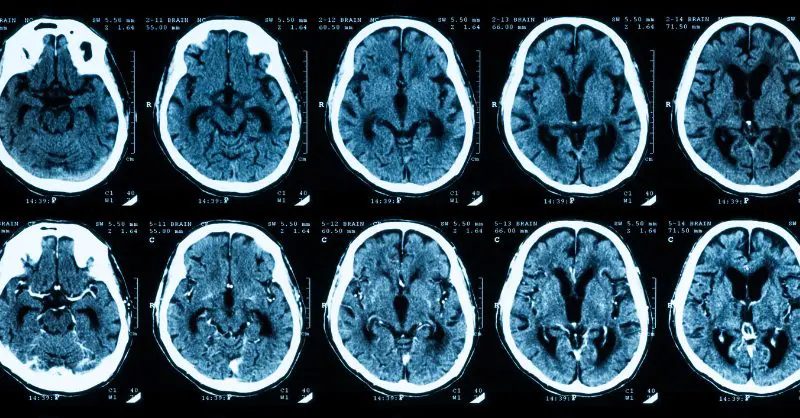
Silent Stroke Symptoms: What They Are & Why You Shouldn’t Ignore Them


You’re probably familiar with common stroke symptoms like difficulty speaking, seeing, walking, and numbness on one side of the body. These are all obvious signs, enabling you to quickly get the help you need. However, it’s possible to have a stroke and not even know it or remember it happening. Silent cerebral infarction (SCI) is a “silent stroke” that causes brain damage and often leads to a more severe stroke down the road, possibly within the next year.
- Silent strokes are much more common than other recognizable types of strokes. Experts estimate:
- Silent strokes affect 8 million to 11 million Americans each year.
- “For every person who has a stroke with symptoms, about 14 others have a silent stroke.”
Understanding the symptoms of a silent stroke is critical to safeguarding your health. Over time, the damage from these strokes can accumulate, leading to more serious issues.
None of us want to live under such uncertainty. Aviv Clinics is here to help you take full ownership of your health. Learn the facts about silent stroke and how to recognize the 10 key symptoms.
What Is a Silent Stroke, and How Does It Differ from Other Strokes?
Like other types of strokes, a silent stroke occurs when an obstruction cuts off the blood supply to part of your brain.
The difference between silent strokes versus other strokes is this: The part of your brain affected by a silent stroke is too small to block your vital brain functions. Your symptoms may go unnoticed or be blamed on other health or mental conditions.
Most people don’t know if they’ve experienced a silent stroke. They would only know through an MRI or CT scan, which shows affected small blood vessels, changes in white matter, or lesions.

What Are the 10 Symptoms of a Silent Stroke?
There are 10 signs of a silent stroke you or a loved one may experience. Depending on the sign, these may last a couple of hours, a few days, or even persist long-term.
However, he symptoms of silent stroke may mimic signs of other medical conditions, making them complex to recognize. Be sure to speak with your doctor about any concerns you may have. Following are symptoms you should be aware of:
- A lapse in (or loss of) short-term memory: Do you have to ask someone to repeat instructions they just told you, but still remember details from a conversation you had last month? Is there a day or activity you had recently that you simply don’t remember, even with prompts?
- A decreased ability to think or reason: Have you given up on a game you used to love playing, like Sudoku or crossword puzzles? Do you find yourself frustrated or arguing more because you don’t understand someone else’s reasons for wanting you to do something?
- Mood changes: Are you suddenly irritable, anxious, apathetic, or depressed? Have you found yourself crying or laughing for no apparent reason or at inappropriate times?
- Psychiatric disorders: Do you have hallucinations or delusions? Have you engaged in inappropriate motor behavior, like repeatedly banging your head?
- Trouble with balance: Are you experiencing dizziness or feeling like your head is spinning? Is it difficult to make quick adjustments to maintain balance? Do you find yourself stumbling or bumping into things? Does it feel like you’re standing upright when in fact, you’re leaning to one side?
- Movement or walking impairment: Are your toes now catching on the ground when you take steps? Do you tire quickly just from walking to your neighbor’s house? Is walking and talking at the same time difficult for you?
- Limb clumsiness: Does it take concentration to control your hand motions? Is it tricky to type even though you’re normally very proficient? Do you have a shaky leg? Are you noticing a decrease in hand-eye coordination?
- Incontinence: Do you feel the urge to urinate more often than usual? Are you consciously or unconsciously leaking urine or stool during the day or while asleep at night? Is it difficult to empty your bladder completely?
- Headaches or migraines: Are you having more headaches or migraines than usual? Or are you getting long-term, persistent headaches? Have your headaches become severe enough to disrupt your daily activities?
- Vision issues: Does seeing clearly take concentration? Are you less aware of your surroundings? Do you have double vision? Has your field of vision become smaller?
It’s important to note that these symptoms of silent stroke may also be signs of other medical conditions, so it’s important to speak with your doctor about your concerns and treatment options.
Why Silent Stroke Symptoms Can Be So Dangerous
- Just because you don’t feel a silent stroke doesn’t mean it’s not harmful. A silent stroke kills brain cells and tissues. A study published by the American Heart Association (AHA) journal calls signs of a silent stroke the “most common incidental finding on brain scans.”
- It’s common to suffer several silent strokes before noticing a cumulative neurological effect, even vascular (post-stroke) dementia. In fact, “almost a quarter of people who have had a stroke will go on to develop dementia after about three to six months.”
Can You Treat a Silent Stroke?
Please know there is still hope after a silent stroke.
Peer-reviewed, published scientific studies show a unique hyperbaric oxygen therapy (HBOT) protocol can help improve neurocognitive functions of post-stroke patients.
Hyperbaric oxygen therapy involves breathing 100% pure oxygen in a pressurized chamber. The unique protocol in these studies fluctuates oxygen levels, unlocking the body’s self-healing abilities through a phenomenon known as the hyperoxic-hypoxic paradox.
The Aviv Medical Program for Stroke Recovery
The Aviv Medical Program was founded on this research and unique protocol. The post-stroke program at Aviv Clinics has helped stroke survivors regain some of their capabilities, in many cases several years after their incident.
In addition, our team can conduct high-resolution scans as part of an in-depth assessment of stroke and its resulting damage to the brain. Clinicians can use this information as a map for each client’s customized program and to track recovery in post-treatment assessments.
Learn about our post-stroke program>>
Depending on your symptoms, needs, and goals, your post-stroke program can include the following:
- In-depth review of medical history
- Comprehensive physical and neurological exams
- Physical therapy evaluation
- Highly advanced brain imaging scans
- Neurocognitive tests
Once results are received, our medical team collaborates to build a personalized program for each client. The customized treatment plan can include a combination of the following:
- Hyperbaric oxygen therapy
- Cognitive training
- Physical training and/or physical therapy
- Dietary coaching
Stay educated on post-stroke treatments – sign up to watch our webinar >>
Don’t Suffer in Silence: Schedule a Consultation
Don’t suffer in silence. If you or a family member are showing signs of a silent stroke, Aviv Clinics is here to help.
Schedule a complimentary consultation with an Aviv Clinics doctor or take a tour of our specialty clinic and get your advanced brain imaging scans to check for symptoms of a silent stroke.
Last Update: August 8, 2025
Aviv Medical Program provides you with a unique opportunity to invest in your health while you age



